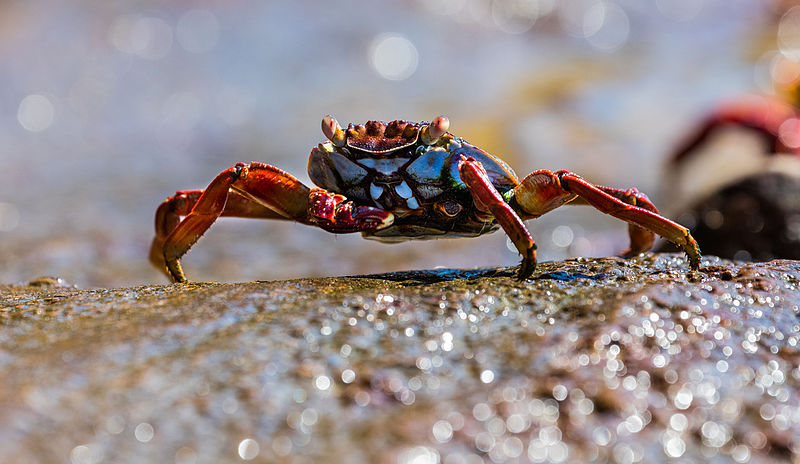Science
Related: About this forumLobsters, Crabs and Octopuses Will Now Receive Welfare Protection as 'Sentient Beings' in the U.K. T
The report outlines recommendations for best practices to reduce animal cruelty and suffering
Rasha Aridi
Daily Correspondent
November 23, 2021

Researchers looked for eight specific neurological and behavioral criteria that indicate sentience, such as the ability to learn and feel pain. Diego Delso
According to a new report commissioned by the United Kingdom government, animals like lobsters, crabs and octopuses are sentient beings that feel pain, which serves as a step towards protecting the welfare of these species, reports Asha C. Gilbert for USA Today.
Moving forward, these species will be included in the U.K.'s Animal Welfare (Sentience) Bill. When passed into law, the bill will establish an Animal Sentience Committee and ensure that the wellbeing of these invertebrates is considered in new laws. The original bill wholly included vertebrates, but left invertebrates out, according to a press release from the U.K. government.
"The science is now clear that [these animals] can feel pain and therefore it is only right they are covered by this vital piece of legislation," Animal Welfare Minister Lord Zac Goldsmith says in the press release.
In the report, experts at the London School of Economics and Political Science reviewed 300 different studies looking for evidence that these critters are sentient. The report concludes that cephalopods—a group of mollusk that includes squids, octopuses and cuttlefish—and decapods—a type of crustacean including crabs, lobsters and shrimp—should be formally recognized and treated as sentient beings, reports Katie Hunt for CNN.
More:
https://www.smithsonianmag.com/smart-news/lobsters-crabs-and-octopuses-will-be-recognized-as-sentient-beings-in-the-uk-warranting-welfare-protections-180979113/
Haggard Celine
(16,850 posts)I've never prepared octopus at home, only eaten it in sushi. But I hope they're slaughtered humanely at the restaurant, if they're still alive when they get there. I'm not going to stop eating seafood or meat, but I do advocate that all animals that are to be eaten are killed in ways that make sure their suffering is minimal. We can do that much.
abqtommy
(14,118 posts)Jim__
(14,082 posts)In August 2004, David Foster Wallace wrote an essay (included in a book of the same name), Consider the Lobster, that covered the Maine Lobster Festival for Gourmet magazine - the link is to that essay at a columbia.edu site. The essay talked in some detail about the behavior of lobsters and their sensitivity to water temperature and to the pain sensors on the lobster.
There is a brief summary of that essay here. An excerpt from that summary:
Duppers
(28,125 posts)But had stopped eating Lobster 20yrs ago, even tho they were my favorite food.
jeffreyi
(1,943 posts)Duppers
(28,125 posts)My brother supplies all his protein needs from veggie protein powder shakes.
I've been eating shrimp. ![]()
![]()
I'll now stop.